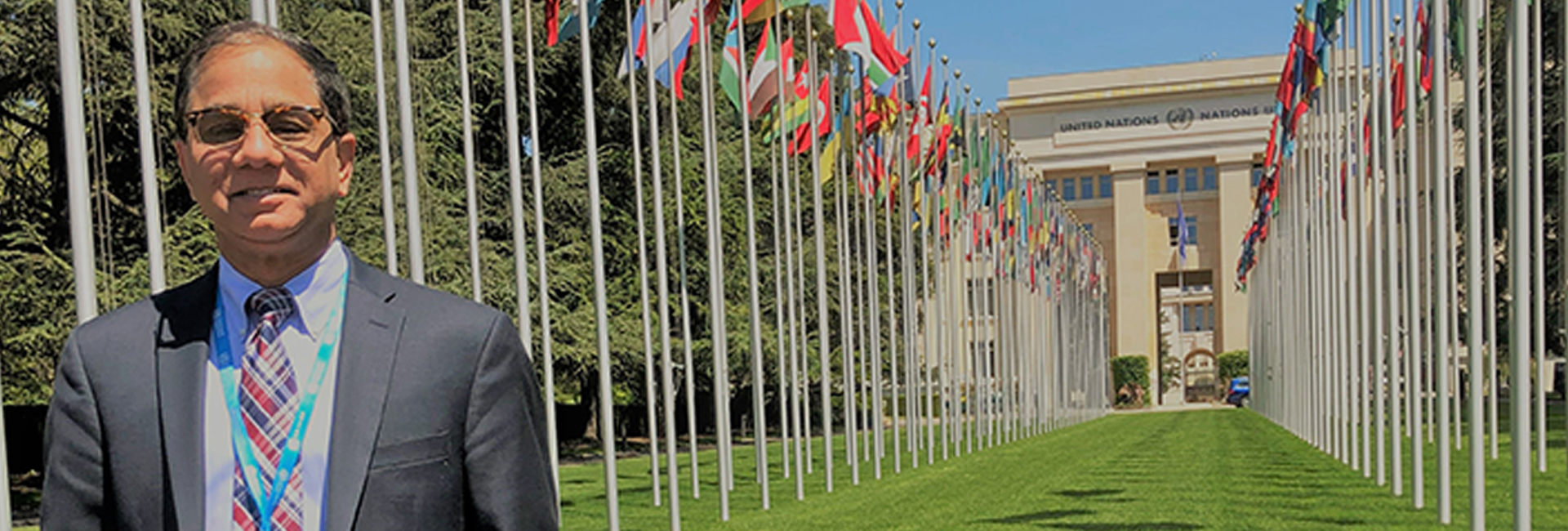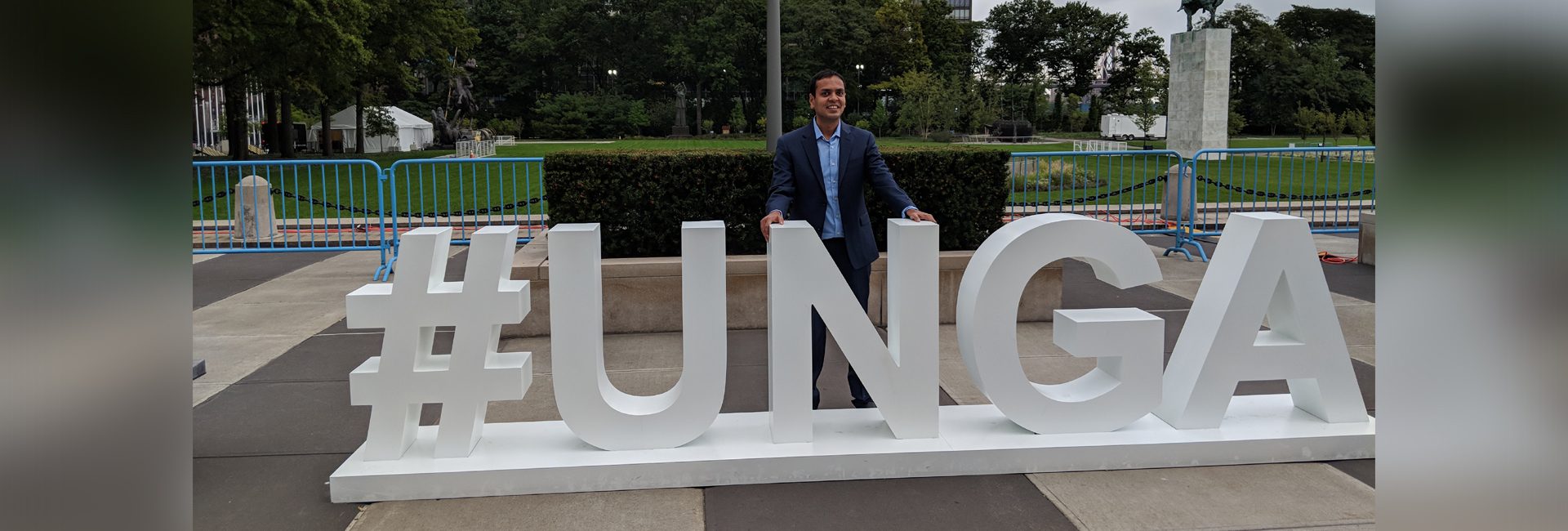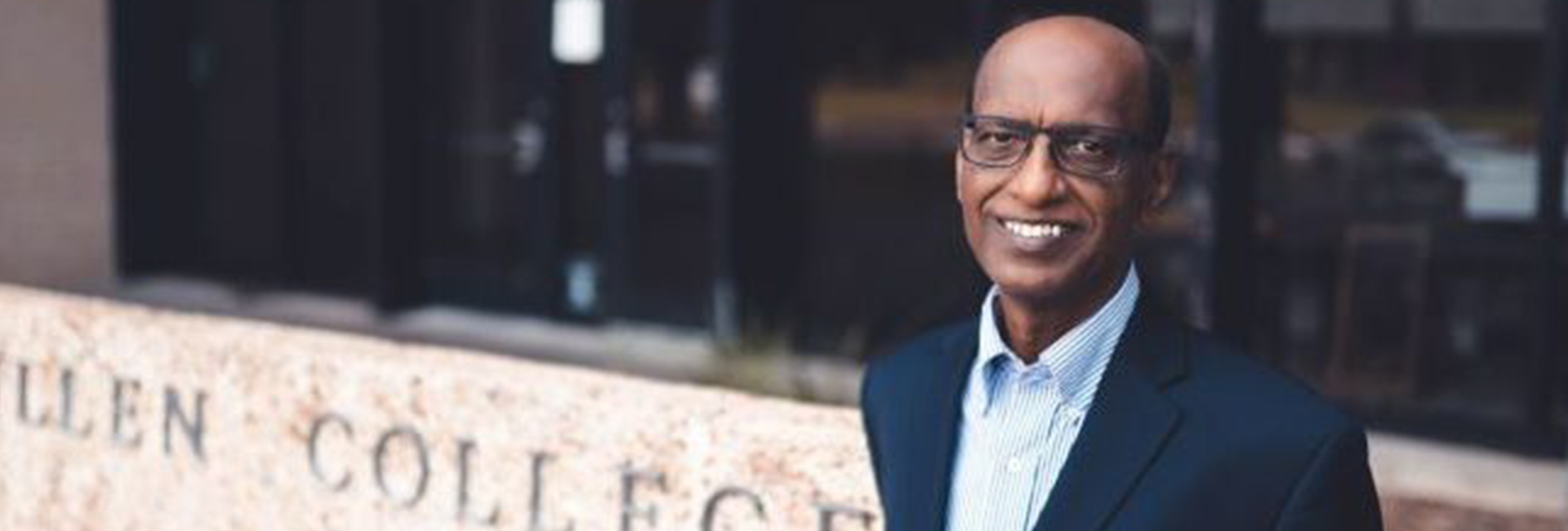(January 2, 2023) As a reporter covering the global pandemic, one of the biggest tragedies that I reported on was the severe shortage of basic medicines in various developing countries, including India. While the world leaders were busy finding a solution to this problem, which might have claimed thousands of lives, an Indian-origin healthcare leader – Dr. Shyam Bishen – pulled up his sleeves and worked tirelessly in licensing and technology transfer of COVID-19 antiviral drugs from US pharma to Indian companies. His only aim was to ensure that these drugs can be produced and made available at an accessible price to low- and middle-income countries.
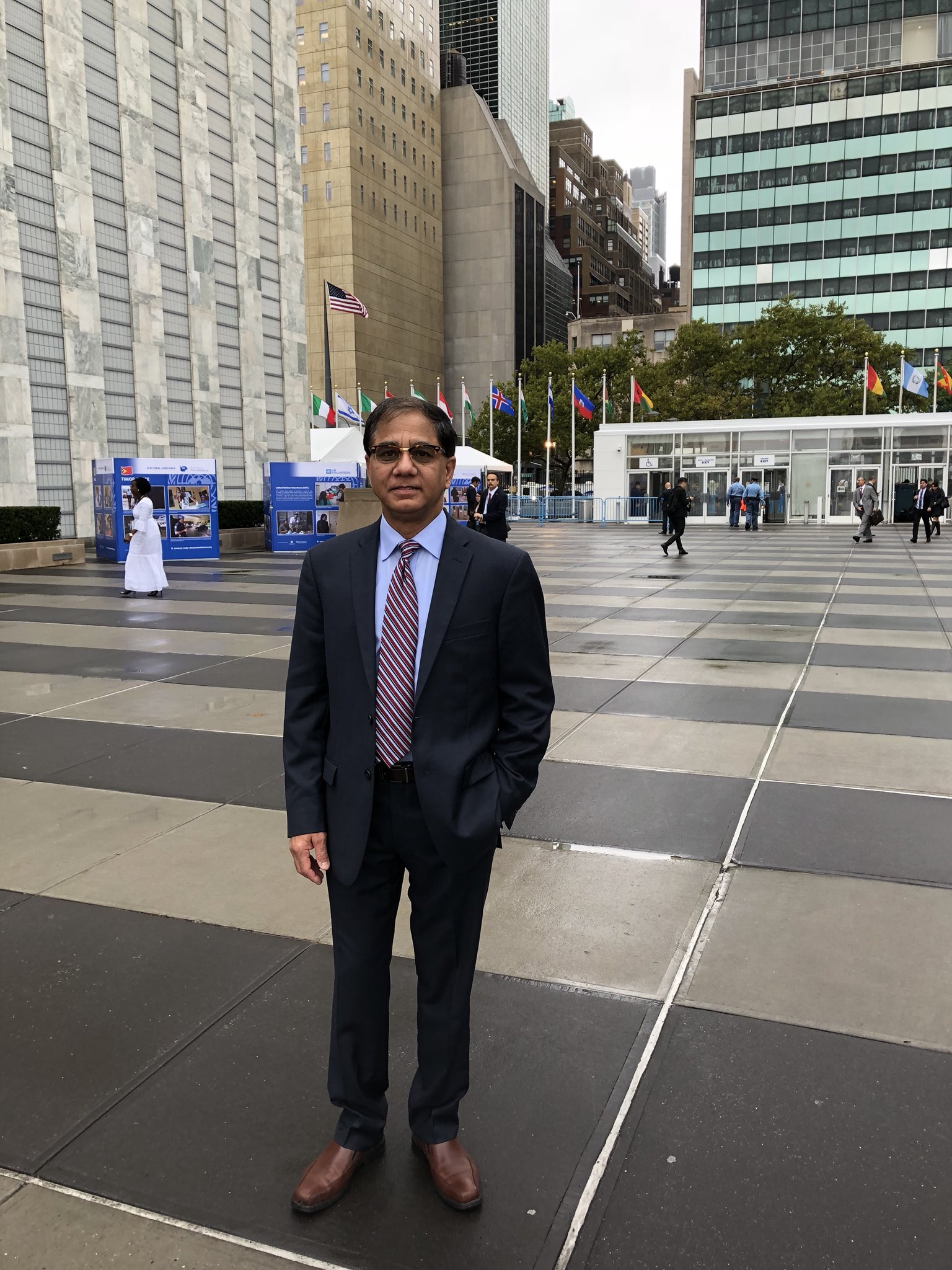
Dr. Shyam Bishen, Head of Health and Healthcare, World Economic Forum
“One of the prime goals in my life has been to increase the accessibility of medicines in developing nations. When the pandemic hit the world in 2020, I was working with Bill & Melinda Gates Foundation as their regional director of partnerships in the global health arena. My focus was to ensure that COVID treatment drugs were accessible in India and other developing countries as soon as possible. Back then anti-viral medicines were being developed by Merck, Pfizer, Gilead, and other big US pharma companies. Even though these drugs were patented, I worked on establishing a partnership that can bring licensing to Indian pharma companies such as Dr. Reddy’s and Cipla. I am glad that it was a successful initiative,” shares the healthcare industry expert as he connects with me from Geneva, Switzerland.
Currently heading the global health and healthcare arena at the World Economic Forum, Dr. Bishen is working on establishing a public-private partnership. “I am invested in bringing private players in the healthcare industry and governments from across the globe so that we can look into and find sustainable solutions for the major health-related issues people are facing. I am engaging political, cultural, and industrial leaders from various countries to overall shape the global health and healthcare agenda,” Dr. Bishen tells Global Indian in an exclusive interview.
Spreading his wings
Born to an affluent family in the small town of Deoria, Uttar Pradesh, Dr. Bishen grew up on a farm in the village. “I spent several years of my childhood in the village, where my family owned a farm. I remember, when I was in the eighth standard, I received a merit scholarship. So we subsequently moved to the city for my education,” shares the healthcare executive, adding, “Even though I come from a family of lawyers, I was always interested in building a career in sciences. My father was very ambitious for me and always emphasised the importance of education. He would often tell me that if I worked hard and was focussed there is no reason why I couldn’t win a Nobel Prize one day. My parents were so invested in my education that my mother even learned a little English so that she can teach me,” he smiles.

An ambitious student himself, Dr. Bishen secured the first rank in his Bachelor of Science class and went to Lucknow University on a National Scholarship to complete his master’s in chemistry with a gold medal. “I was very happy with my accomplishments. I wanted to study further, so after my master’s I joined IIT Delhi as a Ph.D. student,” he shares. However, his destiny was somewhere else. About 18 months into his course, Dr. Bishen got an offer to join the University of Newcastle, Australia as a Ph.D. scholar, in 1984.
“That opportunity proved to be a turning point in my life. For a small city boy, going to Delhi itself was a big adjustment for me. But when I decided to move to Australia, even though I prepared for it by watching several Hollywood movies,” he laughs, before adding, “It was a bit of a culture shock for me. I came from a place where no one spoke English to a land where English was the only language I could use to communicate. During my initial days there, I did struggle to adjust.” After finishing his Ph.D., Dr. Bishen did a short post-doctoral fellowship at the University of Canterbury in Christchurch, New Zealand, post which he left for the USA and joined academia as an assistant professor of pharmaceutical sciences at the Medical University of South Carolina.
The world of healthcare
After working on anti-cancer research at the Medical University of South Carolina for four years, Dr. Bishen decided to join the biopharma industry in 1992. In his 35-long-long career, he has worked with several leading pharma companies, including Pfizer and Merck. While in the biopharma industry, the healthcare expert has discovered many drug candidates in cancer and HIV areas and is listed as the primary inventor on several US and world patents. During his stint at Pfizer, Dr. Bishen also earned an MBA degree from Washington University in St. Louis. He was also trained in a yearlong leadership programme at Harvard University.
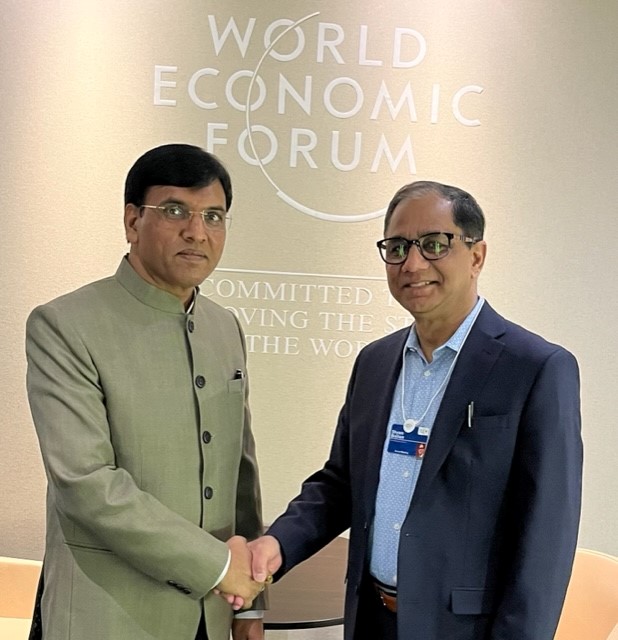
Dr. Bishen with Mansukh Mandaviya, Minister of Health and Family Welfare of India
“While working for the big pharma companies, I got quite interested in the business side of how the drugs are developed and manufactured. I discovered that people in developed nations have good access to medicines, whereas the same is not the case with people in developing nations. Patients in developing nations have to wait for the medicines to be made in their countries until the patent registered in a developing nation expires. I wanted to explore a business model,” he shares.
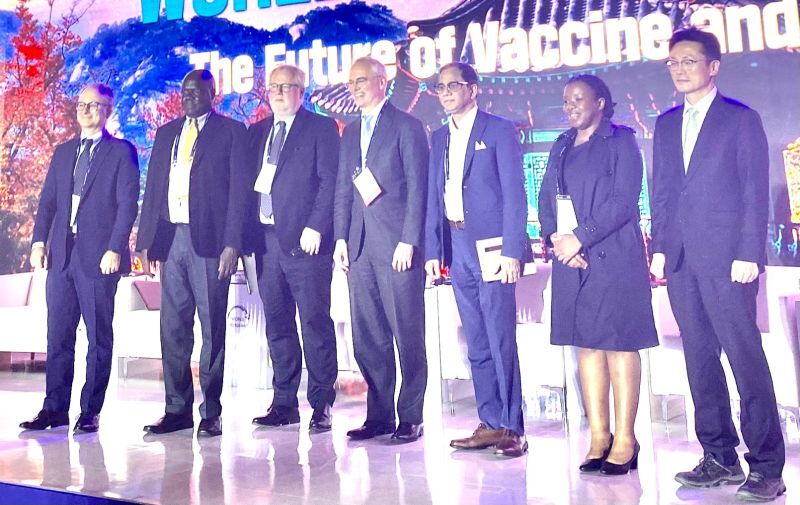
Dr. Bishen at the first World Bio Summit in Seoul, Korea
Dr. Bishen joined the Bill & Melinda Gates Foundation in 2014 and worked to establish programmes like Tuberculosis (TB) Drug Development Collaborator to develop universal TB drugs. Passionate about treating and ending TB, as he has seen its ravaging effects on people’s lives and families in India, Dr. Bishen also participated in the End TB meeting hosted by Prime Minister Narendra Modi in New Delhi in 2018.
In 2022, Dr. Bishen joined the World Economic Forum and as the chief of the health and healthcare division, he is working on ensuring that the world is better prepared for any other global health crisis. Speaking about his work, he says, “We wouldn’t have lost so many people if we had better access to medical facilities. We saw how the healthcare industry collapsed in various parts of the world when COVID first hit us, and we do not want that to happen again. I want to make sure that there is equitable access to diagnostics, medicines, vaccines, and treatments for everyone, irrespective of their country. So, for this, I am working with the G20 and G7 nations, and other countries in Africa to ensure that the world handles the next pandemic in a better way.”
Extreme weather events like floods, hurricanes, heatwaves & droughts severely threaten global health systems.
Developing resilient health systems that can withstand climate change & other shocks is critical.https://t.co/kK030b6kfC | @economistimpact | #SDG3 pic.twitter.com/TjUaBOGwyM
— UNOPS (@UNOPS) October 14, 2022
But a virus is not the only thing to be scared of in today’s world. Dr. Bishen and his team are also looking to tackle various environmental crises across the globe, which are the root of many medical crises as well. “The World Economic Forum is treating climate change and its effects as an emergency. In my mind, environmental disbalance has caused many healthcare-related issues that the world is facing today. There is an increase in several diseases including malaria, dengue, asthma, COPD, and other cardiovascular problems around the world. If we do not take appropriate steps to look for a solution today, these problems will only manifold in the future,” he shares.
Giving back to the society
The healthcare expert, who has dedicated over a three-and-a-half decade of his life to making basic medical facilities accessible in the developing nation, is also quite passionate about girl child education. Dr. Bishen is the Chairman of the Global Girls Scholarship Foundation (GGSF) – an organisation dedicated to educating underprivileged girls in developing countries by providing them with scholarships and other academic-related resources needed for success.
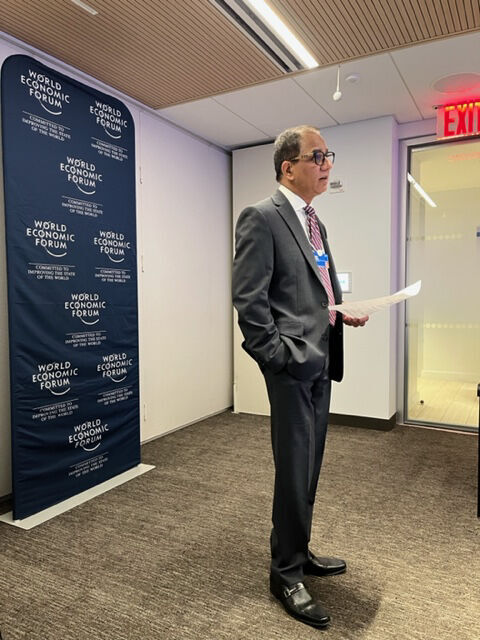
Talking about the organisation, the healthcare expert, who still visits his hometown in UP quite often, says, “I feel that in the rural sectors of India, girls are at a disadvantage when it comes to education, as it is not prioritised by their parents. This issue has bothered me for a while and several years I wanted to do something to rectify the situation. GGSF is registered in the US but does most of its work in India and Africa. In the last four years that the foundation was established, we have been able to generate significant funds with major donations and sponsor over 35 girls’ education. But, we don’t want to stop at just getting them educated. We will also b collaborating with other organisations to help them find a job.”
Also Read: An atypical life: How Ferose VR drives the diversity mindset
